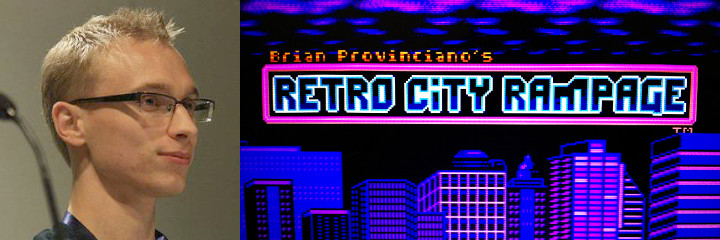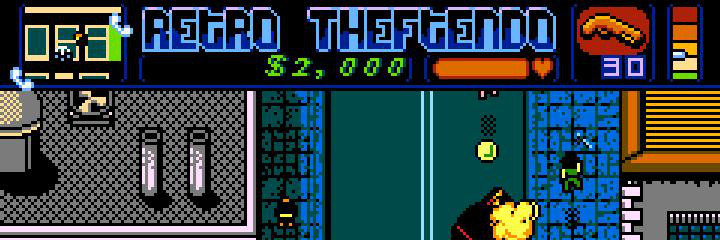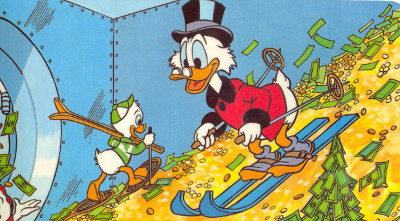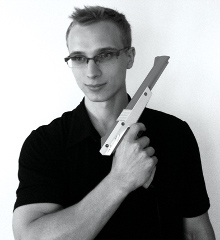Cipher Prime Interviews Brian Provinciano
At our last Dev Night Cipher Prime had the pleasure of interviewing Retro City Rampage designer Brian Provinciano. Together we laughed, learned, and loved. Here’s are some of his awesome thoughts!
Q: What made you think you wanted to do Retro City Rampage, specifically?
A: I didn’t necessarily see Retro City Rampage as the finished product when I started this project. I started it to see what it was like to build my own engine for an open-world game, to figure out how these games (and creating a game for the Nintendo) worked. From there, as I started to come up with funny ideas, my vision became more robust. The game turned into this ultimate microphone for whatever I wanted to do.
Q: Retro City Rampage began as Grand Theftendo, a recreation of Grand Theft Auto III that you built for the Nintendo. Were the hardware limitations of the Nintendo something that stifled you, or that inspired you?
A: Adhering to NES standards began as an exciting challenge, but I had to go through so many revisions to bypass the technical limitations of the system that frankly I was glad to make the shift to C++ when I did. Still, I’m proud of how I kept the gameplay so NES-esque. For instance, I restricted myself to the NES’s palette, to the number of colors that the NES could display onscreen at a given time. My accurateness adds an extra level of polish.
Q: Do you consider Retro City Rampage a success?
A: I do now. But when it launched, I didn’t feel that it was a success. I had imagined this huge launch date, but it didn’t end up being as massive as I’d hoped. The other thing that I didn’t expect–and I know this will sound naive–was that people wouldn’t like it. Leading up to the game’s release, I would demo the game and hear almost nothing negative from anyone. So when it launched, that’s what I figured it would be like. I’ve realized that it was absurd to think that. When reviews started coming out, I would focus on the negative ones instead of basking in the positive ones, and that’s the biggest mistake I made at launch. I didn’t let myself enjoy the success of completing something I spent years working on. To this date, I haven’t held a release party. When the game initially sold only 20,000 units, I was really bummed. But the good news is that it’s still selling. Actually, it’s sold more this year than it did last year–now it’s sold over 100,000 units.
Q: Do you have any words of advice for those who want to go full-time indie?
A: The biggest shocker to me when I went full-time indie was the time I’d end up spending on non-development tasks. Once I went indie, I had to make sure that I made money and that the game succeeded. So I had to start worrying about the business, about office administration, accounting, legal matters, getting licensed by consoles. All of that non-fun stuff. When I quit my full-time job, I figured I’d have another nine hours a day to spend working on my game, but I often ended up spending those nine hours on paperwork and emails. If you’re going to make games, I would recommend working with at least one other person. Doing it all yourself is just way too much of a burden.
Q: Bro, do you even lift?
A: …Yes. Yes I do.
_____
If you’re interested in receiving more news, promotions, ramblings, and/or snuggles, subscribe to our mailing list. We’ll love you extra.



